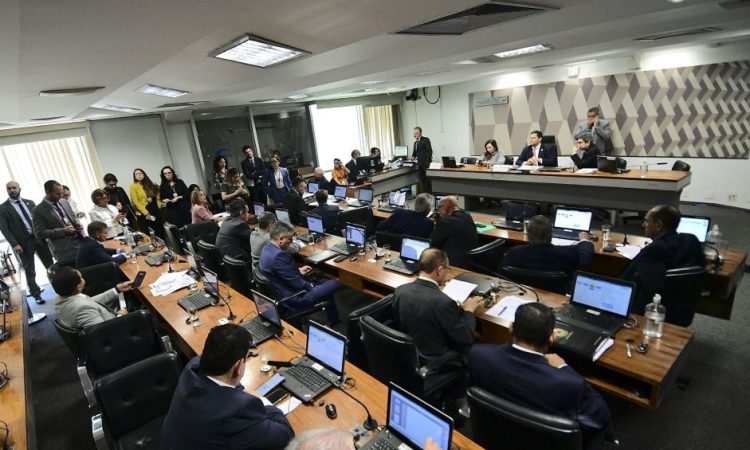
The Chamber’s Constitution and Justice Committee (CCJ) approved this Wednesday (9), by 39 votes to 18, the proposal that limits monocratic decisions by ministers of the Federal Supreme Court (STF). The text must now be analyzed by a special committee before going to the plenary.
The PEC is part of a package of measures that target the Supreme Court’s powers that are being analyzed by the CCJ. The text was approved under protests from government supporters, who tried to obstruct the vote after failing to negotiate an agreement.
The PEC had already been discussed four other times, ending with the postponed vote.
The so-called monocratic decisions are those handed down by just one judge. The proposal applies to the STF and other higher courts, such as the Superior Court of Justice (STJ) and the Superior Electoral Court (TSE).
In practice, the PEC provides that magistrates will not be able, through an individual decision, to suspend the validity of acts of the presidents of the Republic, the Senate or the Chamber.
According to the text, monocratic decisions that suspend the effectiveness of laws or acts of the presidents of the Republic, the Senate, the Chamber or Congress are prohibited.
As a rule, the CCJ evaluates the constitutionality and admissibility of proposals, not their merit. It is up to the collegiate to give approval or not for the progress of the texts in the House. Once approved, a PEC still needs to be analyzed by a specific commission.
If it passes in the Chamber without changes in the special committee and in the plenary, the text could go to promulgation.
In the vote, only the PSOL-Rede and PT-PV-PCdoB federations, in addition to the majority and government benches, advised against the text, on the grounds that the proposal violates the separation of public powers.
The rapporteur of the proposal was deputy Marcel van Hattem (Novo-RS). In the document, he states that the PEC is “non-partisan” and aims to “improve decision-making by the Judiciary”.
What the PEC says
According to the proposal, during the Judiciary’s recess, monocratic decisions will be allowed in cases of serious urgency or risk of irreparable damage for requests that imply the suspension of the law’s effectiveness.
However, the court must judge the case within 30 calendar days after the resumption of work, otherwise the decision will lose its effectiveness.
In cases of precautionary decisions, those taken as a precaution, in actions that request a declaration of unconstitutionality of law, the merits of the action must be judged within six months. After the deadline, the case will have priority on the agenda.
The new rules and deadlines for analyzing monocratic and precautionary decisions will also apply to processes in the STF that:
- prevent the processing of proposals in the Legislature;
- affect public policies;
- create expenses for any Power.
STF on target
The CCJ’s agenda was focused on the package of proposals that limit STF decisions. The texts had their votes postponed before due to requests for views (more time for analysis) from the government base.
Before the meeting, government allies tried to negotiate an agreement to vote only on the PEC of monocratic decisions and begin discussion of another proposed amendment to the Constitution, which allows Congress to suspend STF decisions.
The president of the CCJ, deputy Caroline De Toni (PL-SC), and other members of the opposition did not accept the idea of an agreement and it was decided to continue with the entire agenda.
In addition to the two PECs, the agenda also includes two other projects that expand the list of crimes for which ministers of the Federal Supreme Court are responsible, to include the public expression of opinions by STF magistrates on issues in the judicial process, orders, votes or sentences.
The proposals also consider crimes:
- usurp the powers of the National Congress;
- the use of prerogatives for one’s own benefit;
- violate parliamentary material immunity;
- and obtain undue advantage, for oneself or for another, due to the role.

